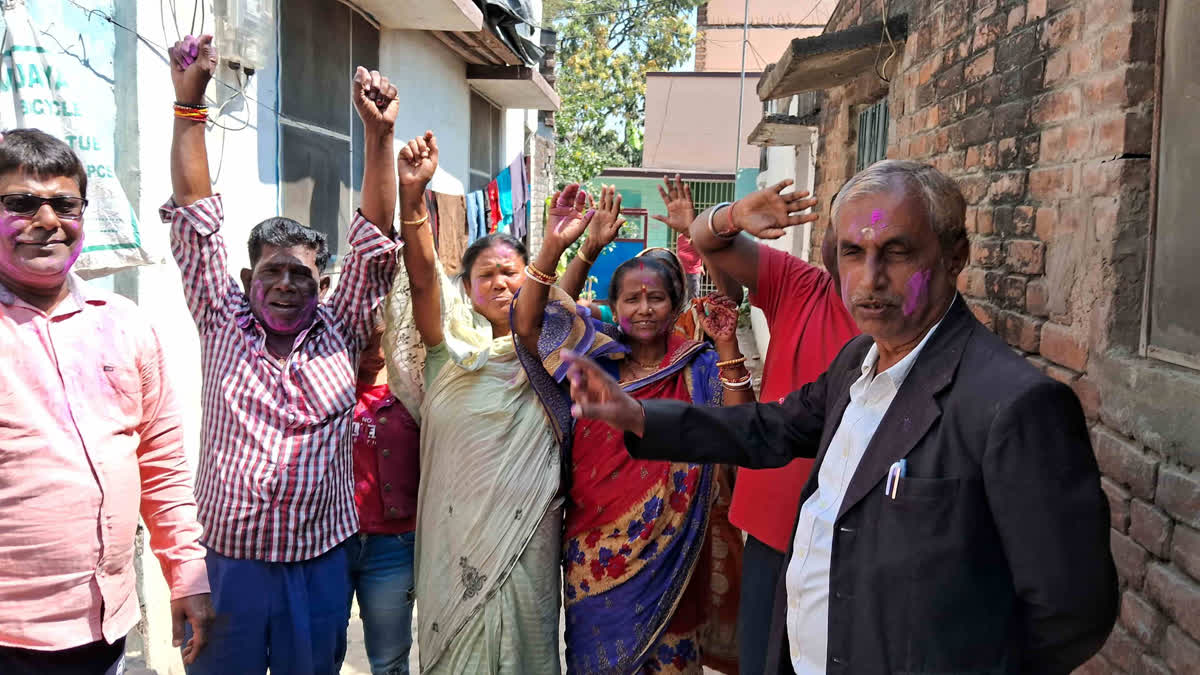Muzaffarpur (Uttar Pradesh): The Refugee Colony in Gannipur celebrated the implementation of the Citizenship Amendment Act in the country with residents applying Gulaal (dry colour) to each other.
Many of them are refugees from Bangladeshis who reached India in 1956. They alleged that with the implementation of CAA, thousands of families who have been struggling for citizenship will now breathe a sigh of relief.
Locals people said that after arriving in India in 1956, the administration helped their ancestors settle by providing them with land. The same facilities that were offered to native citizens were also given to the refugees back then including the right to vote.
Despite grave struggle for citizenship initially, there was completely support from the public representatives and now we are one family, they claimed.
Advocate Sanjay Sinha, resident of Refugee Colony, said that CAA had already been passed but some bogus leaders misled the Muslim community brainwashing them into believing that this act would harm their community.
"This is the primary reason why the law, despite being passed, could not be implemented. Talking about 1956, about 32 families had arrived here from Bangladesh. I, too, was born here. Now, there are thousands and hundreds staying here. The implementation of CAA will definitely strengthen these people," he said.
Shah also narrated how his family suffered the brunt of partition and displacement. "I had a rich family in Dhaka, Bangladesh. "We were businessmen who owned house, bar and land. However, the my family including my grandfather and father were uprooted from Bangladesh and had to reach Muzaffarpur after wandering through many cities," he added.
Varsha Singh, a daughter of this refugee colony who served as a mayor earlier, whose family too had migrated from Bangladesh in 1956 alleged it would be better if there was no discrimination against any community under this Act.
"With the implementation of the CAA, the central government has deprived people of one religion. The pain of all displaced people is the same and there should have been no practise of discrimination against anyone, " she added.
Read More:



